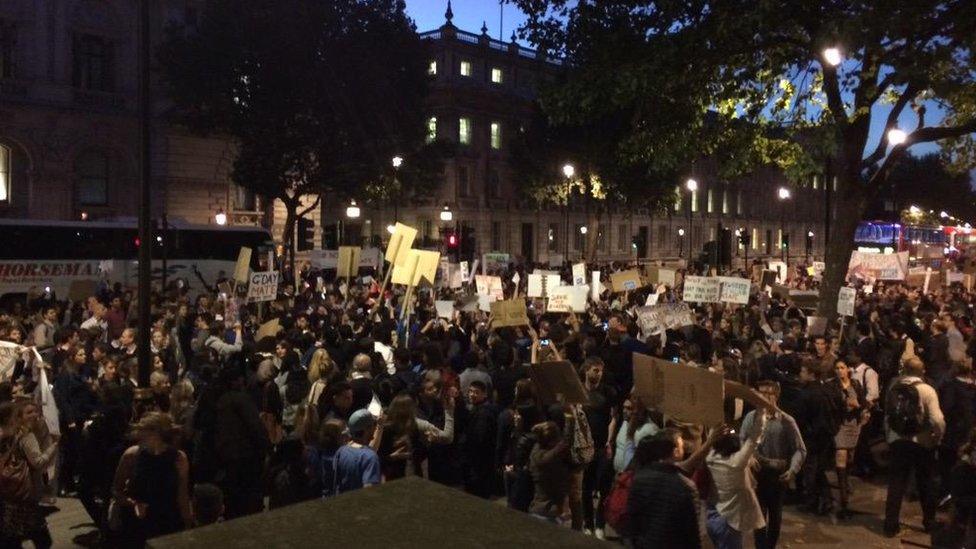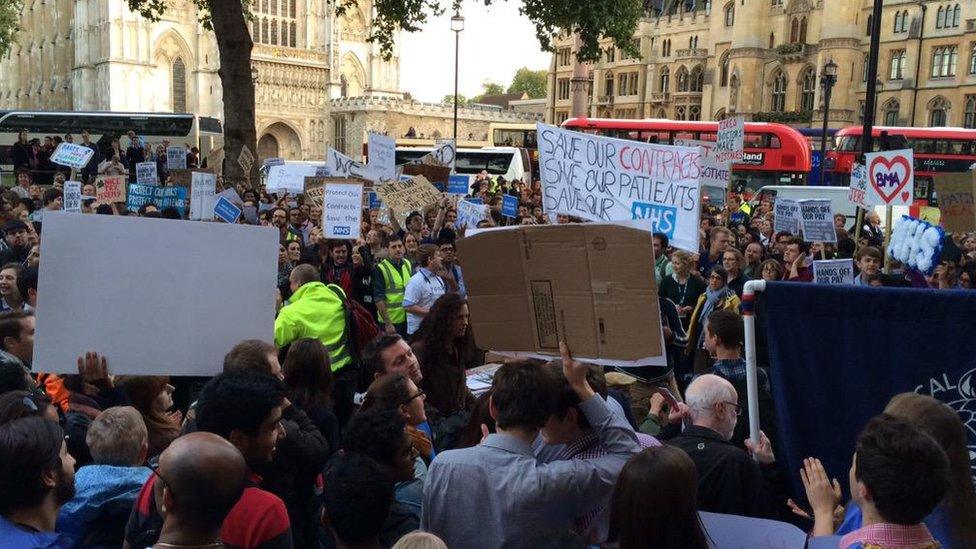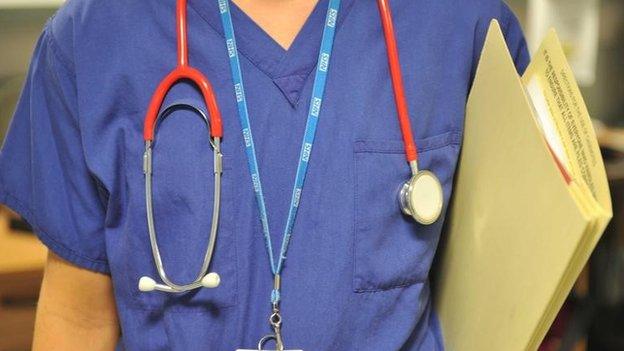Health secretary to meet doctors over contract row
- Published

Junior doctors held a protest in Westminster to vent their anger at the government's proposals
Health Secretary Jeremy Hunt has offered to meet junior doctors' leaders after the decision to ballot medics on industrial action over a new contract.
On Saturday, the British Medical Association (BMA) announced it would be asking members, external in England about whether they wanted to take action.
The dispute is over a new contract due to be introduced in August 2016.
Critics say it could mean 15% pay cuts with "normal hours" re-classed as being from 7am to 10pm, Monday to Saturday.
It means extra payments for unsociable working will only be given outside of these times, rather than the current arrangements of 7am to 7pm, Monday to Friday.
News of the health secretary's intervention came on the day that a few thousand junior doctors held a protest in central London.

Hugh Pym, health editor, in central London
The day's developments did not stop a few thousand junior doctors, some in hospital scrubs, gathering to protest at Westminster.
They chanted "BMA, BMA" with the new chair of the association's junior doctors committee Dr Johann Malawana describing the gathering as probably unprecedented.
Later they marched with their placards up Whitehall and for a time blocked the pavement and road outside the Department of Health.
There is no doubt feelings are running high over the government's planned reforms to junior doctors' contracts. Much now rests on the planned meeting between Health Secretary Jeremy Hunt and Dr Malawana.

The government has described the current contracts as "outdated" and "unfair", pointing out they were introduced in the 1990s.
Ministers drew up plans to change the contract in 2012 but talks broke down last year.
The government has indicated it will impose the new contract next year in England, prompting the BMA to ask its 53,000 junior doctor members about industrial action.
But Mr Hunt has now offered the BMA junior doctors' leaders the opportunity to meet this week to see if they can find a solution to the dispute - the BMA has agreed to attend.

The government says the current contracts are "outdated" and "unfair"
Scotland and Wales have said they do not want to introduce the changes, while Northern Ireland has yet to make a decision.
Danny Mortimer, chief executive of NHS Employers, which negotiates contracts on behalf of the government, said he hoped the meeting would bring the two sides closer.
"Our preferred position has always been to negotiate with the BMA."
Dr Johann Malawana, BMA junior doctor committee chairman, said his organisation "has been clear about what it needs to hear from the government and NHS Employers to bring us back to the negotiating table".
"We will be continuing with our action unless the government themselves can give us the absolute assurances we seek on behalf of the doctors we represent."
- Published26 September 2015

- Published22 September 2015